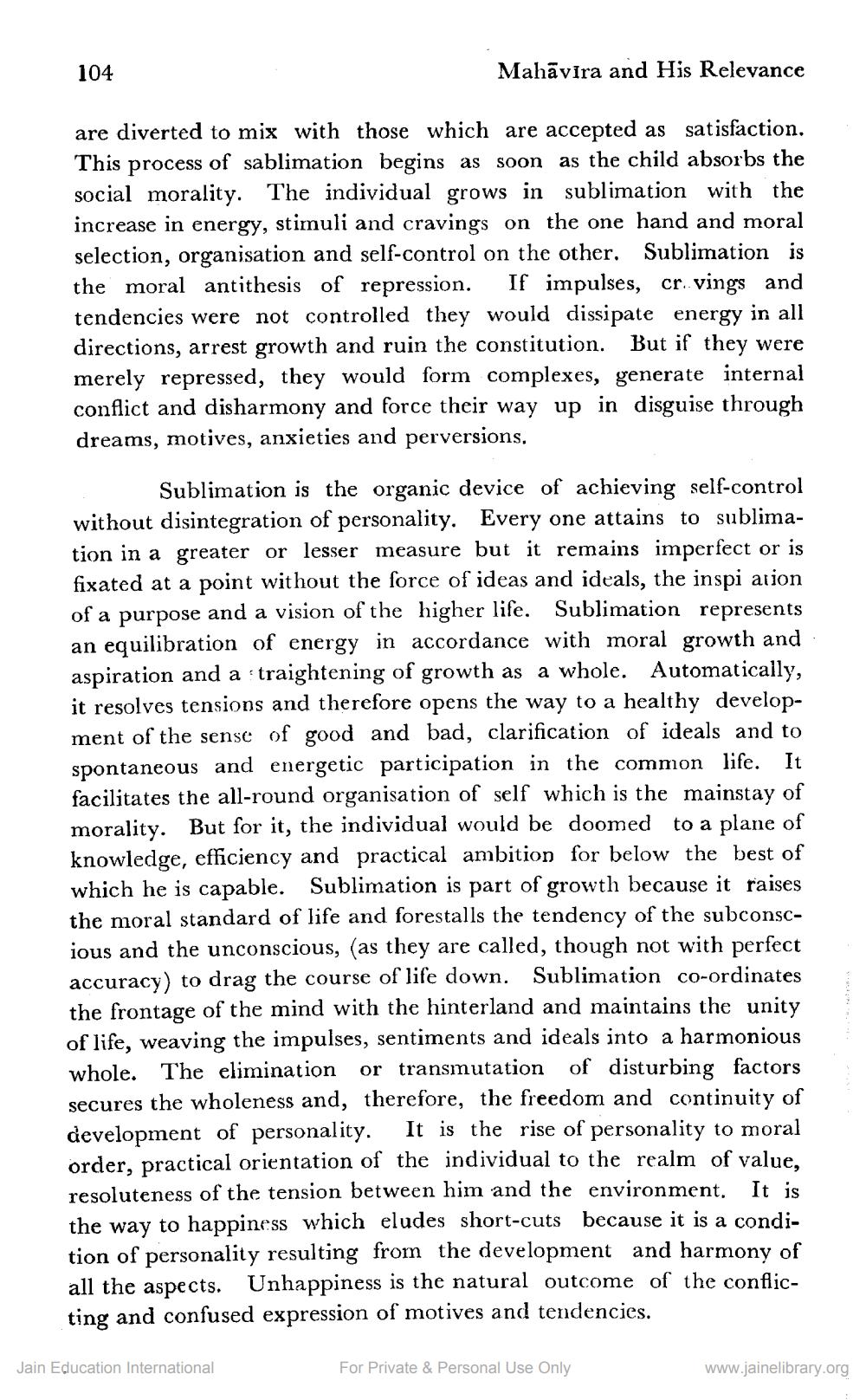________________
104
Mahavira and His Relevance
are diverted to mix with those which are accepted as satisfaction. This process of sablimation begins as soon as the child absorbs the social morality. The individual grows in sublimation with the increase in energy, stimuli and cravings on the one hand and moral selection, organisation and self-control on the other. Sublimation is the moral antithesis of repression. If impulses, cr. vings and tendencies were not controlled they would dissipate energy in all directions, arrest growth and ruin the constitution. But if they were merely repressed, they would form complexes, generate internal conflict and disharmony and force their way up in disguise through dreams, motives, anxieties and perversions.
It
Sublimation is the organic device of achieving self-control without disintegration of personality. Every one attains to sublimation in a greater or lesser measure but it remains imperfect or is fixated at a point without the force of ideas and ideals, the inspi ation of a purpose and a vision of the higher life. Sublimation represents an equilibration of energy in accordance with moral growth and aspiration and a traightening of growth as a whole. Automatically, it resolves tensions and therefore opens the way to a healthy development of the sense of good and bad, clarification of ideals and to spontaneous and energetic participation in the common life. facilitates the all-round organisation of self which is the mainstay of morality. But for it, the individual would be doomed to a plane of knowledge, efficiency and practical ambition for below the best of which he is capable. Sublimation is part of growth because it raises the moral standard of life and forestalls the tendency of the subconscious and the unconscious, (as they are called, though not with perfect accuracy) to drag the course of life down. Sublimation co-ordinates the frontage of the mind with the hinterland and maintains the unity of life, weaving the impulses, sentiments and ideals into a harmonious whole. The elimination or transmutation of disturbing factors secures the wholeness and, therefore, the freedom and continuity of development of personality. It is the rise of personality to moral order, practical orientation of the individual to the realm of value, resoluteness of the tension between him and the environment. It is the way to happiness which eludes short-cuts because it is a condition of personality resulting from the development and harmony of all the aspects. Unhappiness is the natural outcome of the conflicting and confused expression of motives and tendencies.
Jain Education International
For Private & Personal Use Only
www.jainelibrary.org




